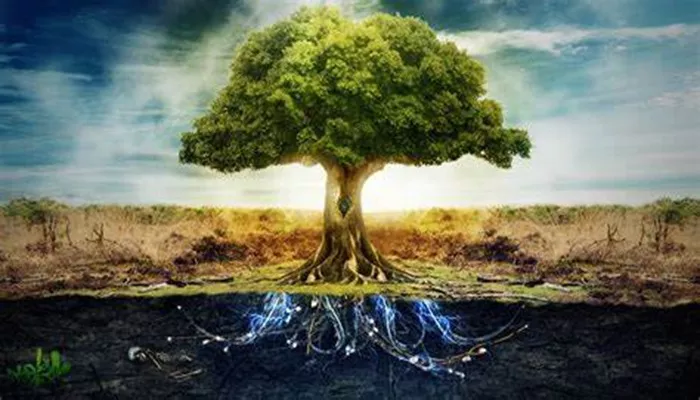The interplay between technology and nature has inspired poets for centuries, offering rich metaphors and profound insights into the human condition. As our world becomes increasingly digitized, poetry remains a vital medium to explore the tensions and harmonies between these forces. This article delves into 13 exceptional poems, blending the themes of technology and nature, each accompanied by excerpts and analyses.
1. William Wordsworth’s “The World Is Too Much with Us”
“Getting and spending, we lay waste our powers;
Little we see in Nature that is ours…”
Though penned in the early 19th century, Wordsworth’s lament about humanity’s disconnection from nature resonates today. The poet critiques industrialization and materialism, suggesting that our preoccupation with technology diminishes our ability to appreciate the natural world. His timeless plea underscores the need for balance between progress and preservation.
2. Wendell Berry’s “Manifesto: The Mad Farmer Liberation Front”
“So, friends, every day do something that won’t compute.”
Berry’s poem advocates for rejecting technological determinism in favor of nature’s rhythms. His call to “practice resurrection” challenges readers to find renewal in natural cycles rather than artificial constructs. The poem is both a critique of modernity and an ode to the enduring power of nature.
3. Gary Snyder’s “Smokey the Bear Sutra”
“A hoard of beetles clattering like an old-fashioned adding machine…”
Snyder merges Buddhist philosophy with environmental activism. The imagery of “adding machines” symbolizes outdated technologies encroaching on ecosystems. Smokey the Bear transforms into a spiritual guide, emphasizing a symbiotic relationship with nature that modern technologies often disrupt.
4. Margaret Atwood’s “Oryx and Crake” (Poetic Passages)
“The future, luminous with genetic splendor, / Flickers on the screen of our invented Eden.”
Atwood’s dystopian vision highlights the double-edged sword of technological advancements. Her poetic lines from the novel explore humanity’s hubris in manipulating nature, warning of the ecological consequences. Atwood’s work invites readers to ponder the ethical limits of technological intervention.
5. E.E. Cummings’ “[pity this busy monster, manunkind]”
“Progress is a comfortable disease.”
Cummings’ experimental style critiques blind faith in technological progress. The “busy monster” symbolizes humanity’s destructive tendencies masked as advancement. His fragmented syntax mirrors the disarray caused by technological overreach, contrasting sharply with nature’s inherent order.
6. Seamus Heaney’s “Digging”
“Between my finger and my thumb / The squat pen rests; snug as a gun.”
Heaney juxtaposes traditional farming with modern tools of expression. The pen, a metaphorical technology, replaces the spade, bridging past and present. This connection underscores the poet’s reverence for nature while acknowledging the role of technology in reshaping cultural narratives.
7. Pablo Neruda’s “Walking Around”
“I’m sick of being a man. / And it happens that I walk into tailorshops and moviehouses / dried up, waterproof, like a swan made of felt.”
Neruda’s existential musings reflect disillusionment with urban industrialism. The “swan made of felt” symbolizes artificiality overshadowing organic beauty. His vivid imagery critiques the homogenization of humanity in the face of relentless technological growth.
8. Adrienne Rich’s “Diving into the Wreck”
“We are, I am, you are
by cowardice or courage
the one who find our way back to this scene.”
Rich explores the interplay of humanity and nature through the lens of exploration and discovery. The “wreck” becomes a metaphor for ecological damage caused by technological pursuits. Her journey signifies the need to confront and reconcile these forces.
9. Langston Hughes’ “The Negro Speaks of Rivers”
“I’ve known rivers: Ancient, dusky rivers.”
Though not overtly about technology, Hughes’ poem contrasts nature’s enduring wisdom with fleeting human constructs. The rivers’ “ancient” quality serves as a counterpoint to transient technological innovations, urging a return to foundational truths.
10. Dylan Thomas’ “Fern Hill”
“Time held me green and dying
Though I sang in my chains like the sea.”
Thomas intertwines nature and technology through the concept of time. The “chains” symbolize industrial constraints, contrasting with the liberating vitality of “green.” His lyrical nostalgia for nature suggests an inherent conflict with technological modernity.
11. Allen Ginsberg’s “Howl”
“I saw the best minds of my generation destroyed by madness,
starving hysterical naked…”
Ginsberg’s critique of post-war industrial America examines the dehumanizing effects of technology. The “madness” he describes emerges from societal disconnection from natural roots, emphasizing the psychological toll of an over-mechanized world.
12. Robinson Jeffers’ “Science”
“Science and mathematics
Run like white water…”
Jeffers reconciles technology and nature by portraying science as part of nature’s flow. His vision celebrates the potential harmony between these realms, offering a hopeful perspective that contrasts with more critical views.
13. Octavia Butler’s “Earthseed” (From Parable of the Sower)
“All that you touch
You Change. All that you Change
Changes you.”
Butler’s poetic verses encapsulate the dynamic relationship between humans, technology, and nature. The Earthseed philosophy suggests that adaptability and balance are essential for survival, reflecting the intertwined destinies of technological and natural evolution.
Conclusion
These 13 poems demonstrate the diverse ways poets have navigated the intersection of technology and nature. Whether through critique, celebration, or reconciliation, each work invites us to reflect on our place within these realms. As technology continues to evolve, poetry remains a powerful lens to examine its impact on the natural world and our collective consciousness.

